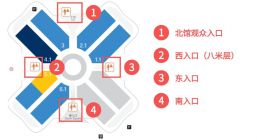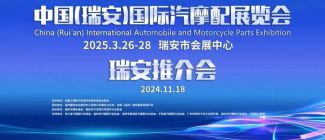According to foreign media reports, Moscow Mayor Sergei Sobyanin said that Russia planned to start producing Russian brand cars in the Soviet era in December, and the factory responsible for production was Renault's Russian factory. Muscovite is a car brand in the former Soviet Union, which has been out of production for about 20 years.
In May this year, Renault symbolically transferred its 68% stake in Avtovaz Volga, Russia's largest automobile manufacturer, to NAMI, the Russian National Institute of Automotive Engineering, at a price of 1 ruble. Later, Renault's local factory was renamed as Moscow Automobile Factory, which was idle for several months. In August, Moscow City and Kamaz, Russia's largest truck company, agreed to invest 5 billion rubles in Moscow's factories.
"The auto industry suffered heavy losses this year, but I hope we can start the Moscow Artificial Factory in December with the help of the Ministry of Industry and Trade." Sobyanin said in May that thousands of jobs would be reserved for the production of "Muscovites" cars. It is reported that the factory has all the expertise needed to become the center of the electric vehicle industry. It plans to produce about 600 vehicles this year, including 200 electric vehicles, and 50000 vehicles in 2023.

(Haval was the best Chinese brand in the Russian market in September)
Withdrawing from Russia made Renault's book loss reach 2.195 billion euros (15.5 billion yuan) at that time, but Renault has the option to repurchase these assets within six years. In 2021, Russia has become Renault's second largest market in the world, second only to the local market in Europe. From January to August 2022, the cumulative sales volume of Renault in Russia was only 31638, a sharp drop of 65% year on year.
On September 23, Toyota Motor announced the end of production in the St. Petersburg factory, becoming the first Japanese car company to withdraw from the Russian market. Recently, Nissan Automobile, Renault's alliance partner, also adopted the same withdrawal plan. On October 11, Nissan said that it would sell its Russian business to local state-owned assets at a price of 1 euro, and the recipient was also the National Automotive Engineering Institute of Russia (NAMI). According to reports, Hyundai, Mitsubishi and Volkswagen are also considering ending their business in Russia.
The latest data shows that the cumulative sales of new cars in Russia in the first three quarters of 2022 fell by 60% to 500000 on a year-on-year basis, 15 years backward.
While European and American auto enterprises are withdrawing, Chinese auto enterprises are trying to seize the market opportunities, and their market share has increased from 9.3% last year to 15.9%. In September, 3 of the 10 best selling brands came from China. Haval was the best performing Chinese brand, ranking 4th in sales. At the same time, Russian local brand Lada achieved a 20% sales growth in September.
AMS2024 Exhibition Guide | Comprehensive Exhibition Guide, Don't Miss the Exciting Events Online and Offline
Notice on Holding the Rui'an Promotion Conference for the 2025 China (Rui'an) International Automobile and Motorcycle Parts Exhibition
On September 5th, we invite you to join us at the Wenzhou Auto Parts Exhibition on a journey to trace the origin of the Auto Parts City, as per the invitation from the purchaser!
Hot Booking | AAPEX 2024- Professional Exhibition Channel for Entering the North American Auto Parts Market
The wind is just right, Qianchuan Hui! Looking forward to working with you at the 2024 Wenzhou Auto Parts Exhibition and composing a new chapter!
Live up to Shaohua | Wenzhou Auto Parts Exhibition, these wonderful moments are worth remembering!
Free support line!
Email Support!
Working Days/Hours!





